Hypothesis:
Variables:
Measurement:
Research Method:
Evaluation of Theory:
Results:
Conclusion:
Exhibit 1
Survey
-will conduct survey of 100 students attending Sogang University
-questionnaire consists of 11 questions, only 5, 9, 10, and 11 being relevant to the research
-the rest of the questions have been placed as placebos to prevent subject bias thus increasing the reliability of the survey
-subjects of the survey have been guaranteed their anonymity.
-the survey questionnaire is attached as Exhibit 1
Evaluation of Theory:
Five Causal Hurdles
1. Is there a credible causal claim?
-Yes. Alcohol consumption can directly affect students’ academic performance. Attending drinking sessions can be a big distraction to students making it hard for them to focus on their studies. This is especially true for freshmen, who are often pressured by their seniors to frequently attend drinking sessions. Even without pressure from seniors, many freshmen are internally motivated to attend drinking sessions in order to make new friends at the beginning of the semester. As a result, of those who responded to the survey questions, freshmen tended to have a lower average GPA then those of seniors.
2. Does the independent variable come first in time?
-Yes. The results of the examinations (GPA) come out at the end of every semester. The independent variable is the attendance to drinking sessions and because this independent variable comes before the measuring of the dependent variable (GPA), there is no error in temporal order.
3. Is there a co-variational relationship between the independent and dependent variables?
-Yes. Empirical evidence suggests that while alcohol consumption has been on the rise among college students in Korea, academic performance has been dropping. Thus, a co-variational relationship can be said to exist. This relationship is not limited to one of just co-variation. This study proves that a direct causal link exists between alcohol consumption rates and academic performance.
4. Is the correlation endogeneous?
No. The dependent variable (GPA) cannot be responsible for the cause of the independent variable (alcohol consumption). One could argue that a student will indulge in alcohol consumption upon getting good marks on his exam. However, this is not enough to make the relationship endogeneous because the student such an indulgence would last only temporarily rather than being systematic and therefore will not substantially affect the correlation.
5. Is the correlation spurious?
-No. We included several questions that concerned us with the possibility of influencing the hypothesis in the survey questions. Focusing on the dependent variable, we came up with possible causes that could affect academic performance, specifically GPA. Such questionnaires were, the distance between the residence and the school, the drinking capacity of an individual, the age factor and sexuality. As shown in the graphs, the distance between the residence and the school and the drinking capacity of an individual shows no effect on the dependent variable. However, the factors such as age and sexuality may look like they have affected the dependent variable in the same way the independent variable did. However, the number of alcohol consumption have a tendency to show higher result when the subjects are younger and to those who are males. However, it may have affected the independent variable but it has no direct relations with the dependent variable, which is the grade. If we designate the distance between one’s residence and the school as possible factor 1, and the sexuality of an individual as possible factor 2, by making the relationship between possible factor 1 and 2, and GPA, it clearly shows that those factors, possible factor 1 and 2, does not affect the



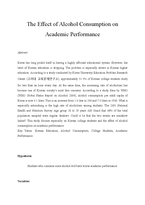
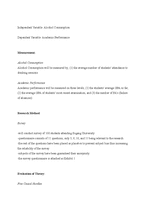
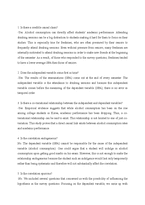
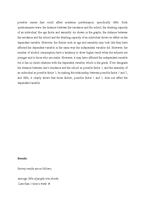
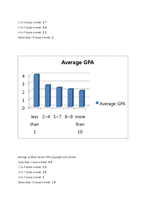
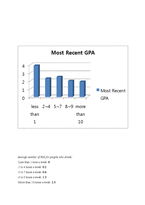
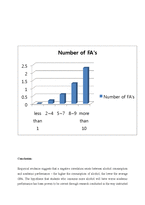
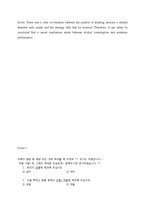


 분야
분야


